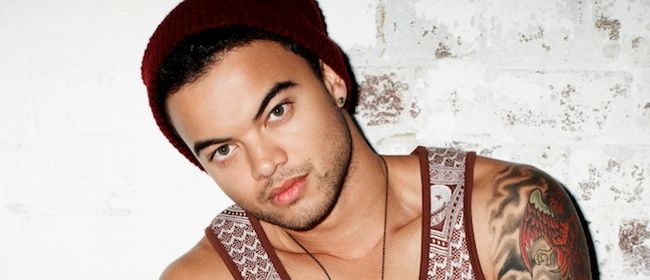Jesus For the Masses
The song went into a breakdown and there was complete silence. The skinny jeaned front man was quiet, and the keyboardist who had previously been raging away in dance was still. All eyes looked to the drummer as he raised his drum sticks into the symbol of a cross.
The tension building in the room hit its climax in a single second, then just as quickly the drummer sat down and the song continued. Looking around it seemed as if nothing had happened; there had been no silence, we had seen no cross. But looking at my sister we knew something significant had occurred; the band Evermore had just brought Jesus Christ to the Yarra Hotel.
Evermore
Hymnals were once fundamental in a good Sunday church service. Choirs in faded robes consisting of men and women who had been born, raised and would soon die in the same four walls were what you would call ‘Christian music’. Yet over the past fifty years just as the world has changed, so has the church.
The contemporary forefathers of Christian music as we now know it were placed on vinyl in the 70’s and 80’s and soon Amy Grant, Keith Green and Michael W. Smith’s albums were a necessity in every Christian house hold. Soon after, churches started releasing music on tape and CD. In the space of several years Protestants had something to work with aside from the hymn book and tattered projector slides; Christian music had become a commodity.
As a generation were brought up with the revolutionary sounds of Grant, a new breed of Christian artists emerged. They were edgier, tougher and cooler. DC Talk introduced us to rap; Five Iron Frenzy gave us ska and rock. Soon these musicians were selling out stadiums and people counted down the days until their new album would be released.
DC Talk
Somewhere amongst this upheaval an even greater phenomenon occurred and Christian bands went secular. Punk band MxPx rocked the music industry on the discovery they were Christians in the early 90’s. In later years country star and pronounced Christian Carrie Underwood had two albums peak at one on the Billboard 200 charts and Mercy Me peaked at five on the Billboard Adult Contemporary Charts with their hit ‘I Can Only Imagine’.
The movie industry began to see the quality of such music and San Diego rock band Switchfoot had their music featured on ‘A Walk To Remember’ starring teen icon Mandy Moore. By the naughties it was clear that what had begun as a Sunday tradition now had its own market.
Growing up I was well aware of a definitive line between ‘Christian music’ and …all other music. An Australian child of the 90’s, my sister and I knew Hillsong’s early anthems better than we knew ‘Advance Australia Fair’. We would dance to their songs at home, sing them at school and perform them to any unfortunate stranger who walked past.
At 11 I received my first music CD in a Christmas stocking; it was a song by a little girl in a pink dress at the Sydney Olympic Games. Even thought it was obscure, this gift changed my life forever. Starting with this CD single it soon became clear that I obsessively needed every CD released by my favourite musicians, Christian or otherwise. Their music and lyrics began to envelope me and I believed them so profoundly that they became intertwined with my faith.
I soon learned that my taste in music was not popular.
My passion for musicians exceeded their single hit and thus made my taste more obscure than other 12 year olds. More so than this, I had a sincere dislike for any music that was contrary to the religious tradition I had grown up in. Perhaps it was the influence of my parents who when I was seven had informed me that singing ‘Wannabe’ by the Spice Girls wasn’t entirely appropriate. I still adored ‘Christian music’ and choreographed to Hillsong and Vineyard whenever possible, however I had begun to see that music and indeed the world was not as black and white as I had once believed.
Guy Sebastian
‘Christian music’ and the secular world finally came together for me when I was 13. I had heard that a young man from the Christian Conference Planetshakers was on the new reality TV show Australian Idol. Sooner than you could say ‘Guy Sebastian’ I was obsessed. Each episode was recorded and watched on repeat.
Even after he won the series these videos became my lifeline as I was diagnosed with depression and anxiety. Sebastian’s songs protected me, gave me courage and chased away the shadows as I struggled to sleep at night; yet the remarkable fact was that not one of his songs mentioned Jesus. Australia knew of his religious affiliation, the press made sure we all knew he was a virgin until marriage, and yet not once has Sebastian released a Christ themed album.
I am thankful to Guy Sebastian, not just for years of music but rather for the lesson he has taught me. I now know that it is possible to be in the world, yet not be influenced by its ways. And as I see him and artists like Evermore subtly weaving faith into their music and living out the message of Christ in their actions, I have been taught that music of all varieties can reflect the creator.
There was a time when ‘Christian music’ could be defined.
Now as a generation evolves with society, it has become a convoluted market often crossing into the secular world. Is Christian music the songs we sing on Sunday? Perhaps it is the songs performed by the indie rocker in a sold out arena. While the line between religion and the world is blurring at a rapid rate there is one positive; Jesus Christ is now available to the masses.



